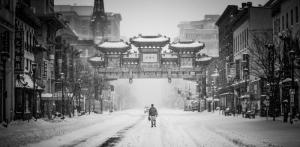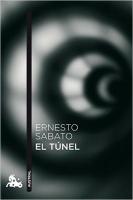Alessandro Baricco: biography and contribution to modern literature
The first time I had a Baricco book in my hands it was the result of chance. A colleague told me about the story of a pianist who lived rocked by the waves of the ocean. At that time, reading fanciful stories was not my devotion. However, I opened the borrowed book and started reading. With a spontaneous and messy prose, he was a monologue that told a perfectly spun story. Since then, I have not stopped reading the delights that this author offers us.
For Baricco, writing is an extraordinary pleasure. He says it is one of the things that keeps him alive and that he will never stop doing. His characters are not entirely sane and his stories are on the way between reality and dream..
For the critics, he is too jealous of the form and unbearably naive. For his followers, a genius of style and theme. Baricco, in any case, has developed a very personal style that places him as a relevant writer within his generation, which decided to break with the Italian literary tradition.
- We recommend you read: "Duane Michals: Biography and Foundations of Photographic Narrative"
Who is Alessandro Baricco?
Born in 1958 in the city of Turin, his childhood coincided with the so-called Anni di piombo, a period of the 1970s where there was a lot of dissatisfaction with the Italian political situation and almost a war was generated civil. Baricco catalogs his hometown as a sad and serious place full of gloomy streets, where light was a privilege, a dream. He was precisely the world of books, which helped him understand life as a mixture of light and dark intensities.
Although he wrote his first novel when he was 30 years old, from a very young age he had written very easily. He graduated in Philosophy and also studied music, specializing in the piano. At 19, he left his family and used his writing facility to work. For ten years he wrote everything: in newspapers, in editorials, for advertising agencies, for politicians. He even wrote instruction manuals for appliances.
Thanks to his philosophical studies, he also wrote essays. In fact, the first thing he wrote was an essay on Rossini, The genius in fugue, where he does a musical theater performance of him. He was very interested in this type of writing and it was what he thought he would dedicate himself to when he was older. He also worked as a music critic for the newspaper La Repubblica Y La Stampa.
In the nineties, he hosted a television show dedicated to lyric (L’love è a dart). He also created and hosted the show Pickwick, broadcast dedicated to literature, in which both writing and literature were discussed, in order to promote interest in literature.
At last, he had tried different typologies, but he had never had the idea of becoming a novelist (at least, for many years). At the age of 25, he was asked to write a movie and it was the first time he wrote anything fictional. This was the moment where he discovered that writing fiction was something else he could do.
A genuine literary style
Baricco is a true admirer of Salinger and in his prose we can observe certain of the traces that come from this American novelist. His novels oscillate between the real and the dreamlike, always from a very personal conception, marked by a variety of turns and registers. In his work, sometimes unreal environments and characters are represented in incessant search and achievement of wishes and dreams, which he uses as vehicles to explore the corners of the human being.
His stories are characterized by having a narrator, who, far from making a judgment about the characters, adds the surreal component. The narrator presents the characters in a delicate way, creating a certain illusion that they want to be discovered and understood by the reader, who identifies with some of the characteristics of the character.
Barrico has managed to develop a personal and unique style that place him among the most relevant Italian writers of his generation. The specialists classify him as a genius of the narrative style and of the great themes of literature.
International recognition of him proceeded with the publication of the novel Silk (1996), which tells the story of Hervé Joncour, a laconic and gloomy character who is forced to undertake a journey to Asia in search of an exotic shipment. It is a wise and at the same time agile book about longing. Delicately wrapped in the form of a fable and with contained eroticism, the story is born from the pebrine epidemic. Translated into seventeen languages and with more than 700,000 copies sold, Silk it meant the international consecration of him.
Breaking with Italian tradition
In his novels a genealogy linked to Italian literature is not detected. This happens, in part, because in the late 1980s and early 1990s, a new generation of writers appeared for whom literary tradition was the enemy, something they did not want to inherit.
Baricco himself tells, in some of his interviews, that they were the first generation that grew up in contact close to television, film and advertising, and therefore his models were sometimes not strictly literary. For example, one of his references when he was the tennis player John Mcenroe since his way of playing was synonymous with spectacle and fantasy.
Even so, among his references there were also literary authors, but these came from the other side of the pond, American literature taking on a lot of influence on what they are. For the young Baricco, Salinger, he was more important than almost all the Italian authors. In addition, it should be noted that they began to designate themselves as European and not typically Italian writers.
Dazzled by American literature
But what did American literature have? What made her so powerful in Baricco's eyes? The style of North American authors contrasted with the beautiful Italian writing of very elegant and rich sentences.
American novelists were more modernIn particular, because their tradition came in part from the cinema, with which they lived in close contact. A clear example can be seen in Hemingway, author of novels where his dialogues were cinematographic.
His narrative rhythms were much faster, stronger and, at the same time, simple. While it is true that short sentences are not beautiful in the literary sense, they provide a more hectic and spectacular narrative rhythm. From Salinger he extracts the oral tale, where the narrator of the story does not stop talking and elaborates a whole monologue that brings a lot of sonority to the stories.
About the writer's trade
In 1994, he founded, in Turin, the Scuola Holden, designed to train writers. The idea was to create a school from which Holden Caufield, the protagonist of The catcher in the rye, he would never have been expelled. The school has a very unique way of promoting growth in its students. It is taught with methods, principles, and rules that are hard to find elsewhere.
Living in their own flesh the loneliness that accompanies this profession, one of the postulates of the school is to avoid the vision of the writer as a hermit. Writers are also artists, although they are the only ones who build invisible works that no one else can see until they are finished.
If writing a novel is like building an “invisible cathedral,” the Holden school seeks to do more the profession of writer is light, since it is where students who build other "cathedrals" meet. invisible ”. In addition, the teachers, who have already built other "cathedrals", accompany and guide in this construction, making the job of writing more bearable.
Baricco says writing is like running alone in a crowded stadium. The stands are full, on the track, just you and your book. He firmly believes that good coaches are needed for the development of this trade. In the same way, although we would not understand that a professional athlete was not taught technique, neither can a writer be understood without narrative techniques.
However, many people think that you should not learn to write and many teachers recommend reading to learn. He takes a completely opposite position and adds that those who think that writing cannot be taught do not have a good relationship with it.
Writing is still a craft. It is not something of artists inspired by a divine voice. The deepest and most beautiful stories emerge thanks to the synergy of talent and technique.



